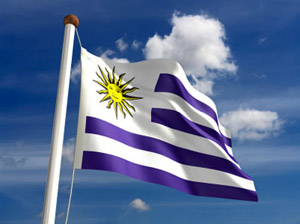Armenian Genocide Museum in Uruguay: The First Step
1611
0
Armenian Genocide Museum in Uruguay: The First Step –
By Vartan Matiossian
In 1963 a joint initiative of the youth organizations of the local Armenian community led to the unprecedented commemoration of the 50th anniversary of the genocide and its recognition by Uruguay in 1965. A communique dated July 5, 2013, signed by Archbishop Hakob Kelendjian, Primate of the Armenian Apostolic Church in Uruguay, and Mr. Ruben Aprahamian, honorary consul of the Republic of Armenia, has reported the formation of the Commission of Commemoration of the Centennial of the Armenian Genocide of the Armenian Community of Uruguay. The committee has been formed by representatives of all religious and lay organizations of the community, whose center is Montevideo, the capital.
The community has suffered from internal divisions since the late 1960s, which have continued without any interruption even after the independence of Armenia in 1991. Only in the last few years, some signs of a more healthy approach have started to appear. This move is more than welcome, with the wish that the formation of this commission may become an important step towards a better understanding and solution of long-term issues.
The Ministry of Education and Culture of Uruguay and the Commission of Commemoration issued a joint invitation to participate in the public announcement of the forthcoming implementation of the Museum of the Armenian Genocide. The announcement was made on July 17, 2013 at the Executive Tower of the Presidential Palace. At the opening of the full-house event, a warm message by President Jose Mujica was read. The first speaker was Subsecretary of Education and Culture Oscar Gomez, who introduced the background of the issue. He was followed by Archbishop Kelendjian and Ambassador of the Republic of Armenia in Argentina (concurrent in Uruguay) Vahagn Melikian, who appreciated and remarked the importance of this gesture. Javier Roger, General Director of the Museum System, made a professional evaluation and reflected on the prospects of development offered by such a project. The closing remark were by Minister of Education and Culture Ricardo Erlich.
The law 18834, called “Accountability and Statement of Budget Execution of Year 2010,” was approved on November 4, 2011 by both chambers (Senate and House of Representatives) of the Uruguayan Parliament and published on Nov. 17, 2011 in the Official Bulletin. Article 205 says (the English translation is ours):
The law 18834, called “Accountability and Statement of Budget Execution of Year 2010,” was approved on November 4, 2011 by both chambers (Senate and House of Representatives) of the Uruguayan Parliament and published on Nov. 17, 2011 in the Official Bulletin. Article 205 says (the English translation is ours):
“The Ministry of Education and Culture is charged with the development of the ‘Museum of the Armenian Genocide’ in consultation with the Armenian communities of Uruguay. Said Museum will have the purpose of making known the genocide of the Armenian people, happened at the beginning of the 20th century, promoting Armenian culture in our country, and collecting information about the Armenian immigration settled in Uruguay. To this aim, said Ministry will have a property of its own, or other state dependencies transferred with that purpose, and will develop it with savings of the same Ministry and donations or wills that may receive with that aim.”
We hope that this announcement will be followed by the swift and smooth implementation of the law with the cooperation of the Uruguayan Armenian community. That may become a good role model for the Armenian American community, particularly the “Armenian Genocide Museum of America” in Washington, D.C.

